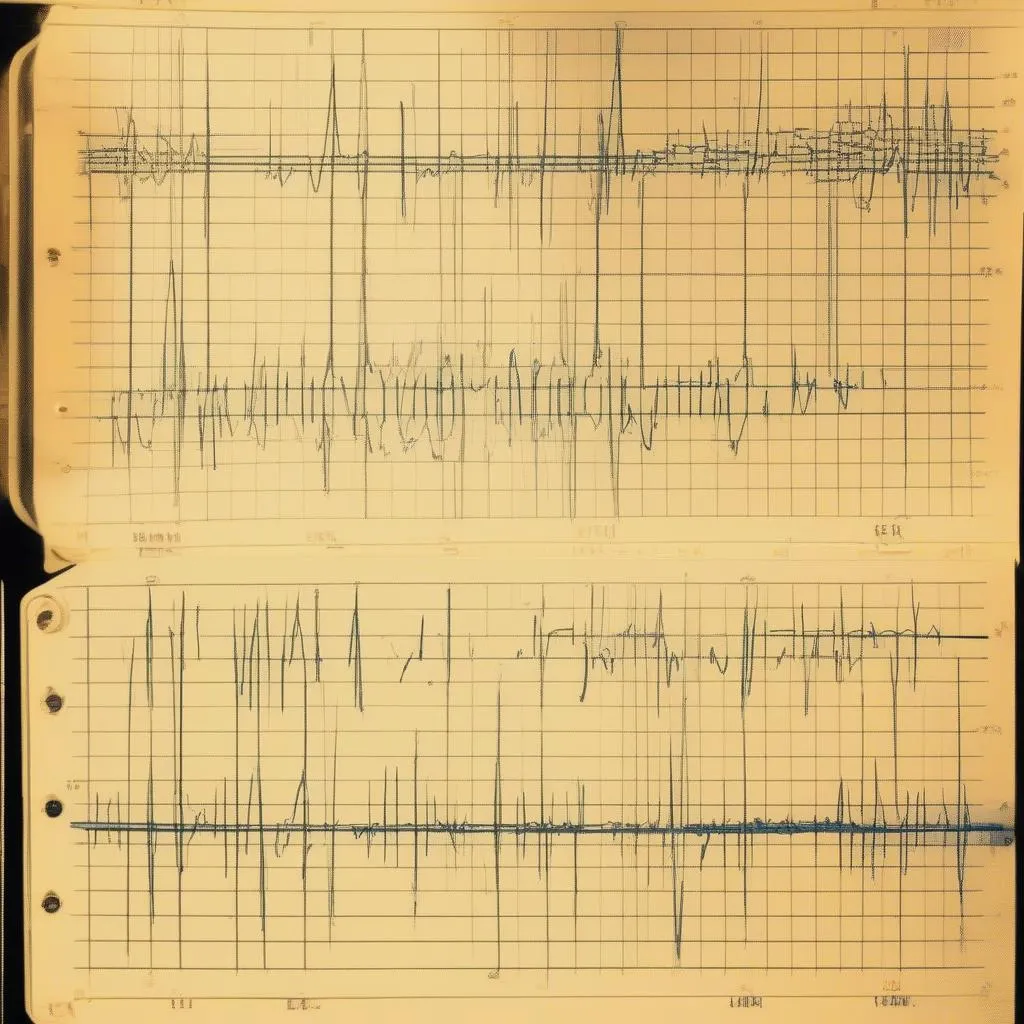“Illness hides within the body like a woodworm boring into wood,” an old proverb speaks to the importance of regular health check-ups. Among methods for diagnosing cardiovascular diseases, the electrocardiogram (ECG) is considered a “divine eye” that helps doctors “see” into the heart’s activity, detecting abnormalities early. But how do you understand the complex lines on an ECG paper? Join “XEM BÓNG MOBILE” to uncover the secrets hidden behind ECG results, empowering you to proactively protect your health!
Wandering Lines: The Secret of the Heart
You may have heard of “a heartbeat as steady as a bronze drum,” but few know that every beat is recorded in detail on an ECG paper. These seemingly confusing lines actually reflect the activity of the heart’s electrical system, helping doctors “diagnose” whether your heart is functioning normally or experiencing problems.
Every Line Tells a Story
The image of simple lines may seem ordinary, but behind them lie stories about each person’s health. Like skilled generals in battle, each line carries a unique meaning:
- P Wave: The “general” commanding the electrical current from the atria, signaling the start of a heart cycle.
- QRS Complex: The powerful “force” from the ventricles, demonstrating that the heart is pumping blood throughout the body.
- T Wave: The solid “rearguard,” representing the heart’s recovery process after pumping blood.
Recognizing Signs of Abnormality
Any changes in the shape, height, width, or timing of these lines can signal a health issue. For example:
- Unusually fast or slow heart rate: The heart’s “force” is working too hard or too slowly, which could be a sign of heart failure, arrhythmia, etc.
- Deformed P wave: The “general” is having difficulty commanding, potentially indicating atrial disease, etc.
- Widened QRS complex: The “force” is weakened, possibly indicating ventricular disease, etc.
“Reading” an ECG: Not for Everyone
You might see the complex lines on an ECG paper and wonder, “Can I read the results myself?” However, reading ECG results requires in-depth professional knowledge, formal training, and years of experience.
Consult an Expert to Answer Questions
To ensure accuracy and safety, you should consult a cardiology specialist for advice and answers regarding your ECG results. Experts will meticulously analyze the lines, considering factors like age, medical history, etc., to provide the most accurate diagnosis.
Frequently Asked Questions
Q: How do I know if I need an ECG?
A: You should consult your doctor for the most accurate advice. However, you might need an ECG in the following situations:
- Routine health check-ups.
- Experiencing symptoms such as chest pain, shortness of breath, chest tightness, etc.
- Having a history of cardiovascular disease or risk factors like high blood pressure, diabetes, etc.
Q: Is an ECG dangerous?
A: An ECG is a safe and painless diagnostic technique. You simply need to lie still on a bed while electrodes are attached to your skin. There are no injections or any interventions on the body.
Protect Your Heart, Protect Your Life
You certainly don’t want your heart to encounter serious problems, so proactively get regular health check-ups, especially ECGs.
Enhance Cardiovascular Health
In addition to getting ECGs, you can protect your heart by:
- Maintaining a healthy diet, limiting fatty, sugary, and salty foods.
- Exercising regularly, at least 30 minutes per day.
- Getting enough sleep, avoiding stress.
- Controlling blood pressure, blood sugar, and cholesterol levels.
Remember:
“Plants need care, hearts need protection.” Take time to care for your cardiovascular health, because the heart is the “home” of love and life!
Always by Your Side, Protecting Cardiovascular Health!
Want to know more about ECGs or have any questions about cardiovascular health? Contact “XEM BÓNG MOBILE” immediately via phone: 0372966666 or visit us at: 89 Kham Thien, Hanoi. We have a team of experienced medical experts, always ready to support you!

